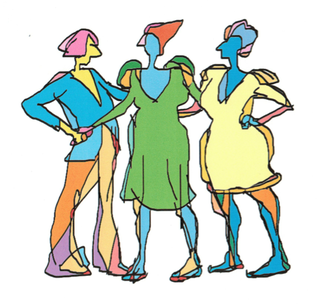Fear
Commitment to Connection in a Culture of Fear
Why healthy human relationships are the antidote to chronic fear.
Posted September 15, 2019
Commitment to Connection in a Culture of Fear
by
Judith Jordan, Jayme Banks,
Jane Feinberg and Amy Banks
On September 11, 2001, our country experienced an act of unprecedented terrorism. After the attack on the Twin Towers and the Pentagon, our vulnerability as a society was palpable. Craving the reassurance of safe connection, family members rushed home to be with loved ones. Friends and strangers reached out to one another for comfort. However, as leaders echoed each other’s call for justice and vengeance, our sense of vulnerability quickly turned to anger and anger to rage. We were justifiably scared, anxious, and angry—but we made a choice as a society to move into a state of retribution, to use a common enemy to create unity. It is, in some ways, a natural default response in a culture of hyper-individualism that celebrates going fast and going it alone. When heroism is idealized, we resist being vulnerable because it seems weak. We don’t want to depend on anyone else and feel a sense of shame if we must. Or we mock others who, due to conditions outside their control, require help from others.

What if, on the heels of 911, our leaders had encouraged us to step into our collective vulnerability--to better understand our place in the world, how others perceive us, and how to engage in a process of community reflection and healing?
The recent proliferation of mass shootings, hate crimes, and anti-immigration rhetoric demonstrate once again what Americans do when they feel vulnerable, but think they must keep their feelings under wraps. We are suffering as a nation, but we often experience our suffering alone, which leads to fear, anxiety, and helplessness. Rising suicide rates mirror this national sense of desperation.
There is another way, and it’s as old an American tradition as any. In 18th and 19th century rural America, barn raising was a common enterprise. It was a collective action of a community, in which a barn for one member was built or rebuilt collectively by all members of the community. Because each member was entitled to recruit others for help, the favor would eventually be returned to each participant. In other words, because they realized they needed one another, they could overcome their sense of vulnerability by connecting with one another around a common pursuit.
We can do that, too. Connection is the antidote to fear. Popular western psychological theory asserts that human growth moves from dependence to independence. An alternative worldview--one that has grown out of more than four decades of research in what we have named Relational-Cultural Theory--confirms our inevitable interdependence. It recognizes that healthy humans grow into deeper connectivity throughout their lives and that maturity is about our ability to connect in increasingly complex ways. Martin Luther King Jr. once said, “People fail to get along because they fear each other; they fear each other because they don’t know each other; they don’t know each other because they have not communicated with each other.”
King’s words can sound simplistic, except for the fact that recent advances in neurobiology irrefutably demonstrate that interdependence is at our core. We need connection just as we need air and water. Our bodies are exquisitely designed to manage stress by turning to trusted others when we are anxious or scared, but the chronic stimulation of fear without the availability of comfort and love moves us into helplessness and hopelessness. Isolation and division directly stimulate our stress response system. One example is the smart vagus nerve, a branch of the autonomic nervous system that is activated when we are in healthy relationships. When the smart vagus nerve is activated, people feel a sense of calm even in the worst of times. In fact, the reduction in stress that comes from a healthy relationship and a sense of belonging is more powerful than that which can be stimulated by simply deep breathing or individual meditation. Without the resilience created in connection, fear drives us into a death spiral of further disconnection and suffering.
Autocratic regimes may not know the brain science, but they intuitively understand that isolation and division secure their power. They play on our fears and shame others into compliance by creating in others a sense of aloneness in the world. To quote Karen Laing, “Isolation is the glue that holds oppression in place.”
What the oppressors do not realize--and perhaps may not realize until it’s too late--is that all of our fates are shared. In the words of the late and beloved Toni Morrison, “If you're going to hold someone down you're going to have to hold on by the other end of the chain. You are confined by your own repression.”
As Americans living in rapidly changing times, we must stop thinking we can solve complex problems by ourselves. In order to heal our society, we must let go of the notion that there is strength in separation and shed the myth that power over others defines what is considered strong. It will take our collective vulnerability and desire to connect with others to alleviate our suffering and rebuild our social contract.
So as we meet this, the 18th year commemorating a painful national memory, let us remember that our nation’s prosperity—now and in the future—depends on forging connections with those around us, especially those with whom we have the least in common.


